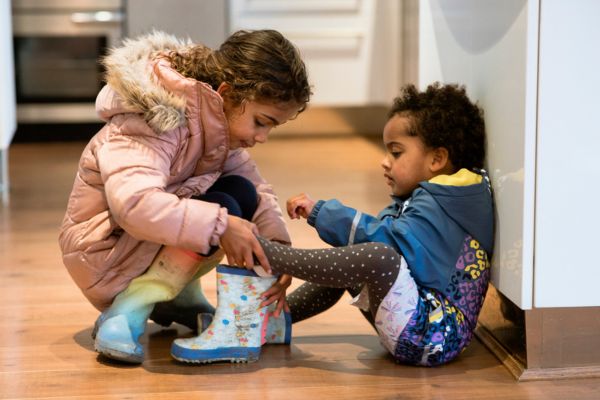
How do the kids you care for respond to a child who is displaying a challenging behavior or has made a mistake? Do they make fun of them, ignore them, ostracize them, or support them? Teaching kids to be supportive of siblings, friends, classmates, playmates, and that random kid on the playground is a gift to both the supporter and the one being supported. Let’s look at how you can encourage that.
1. Avoid Labels
We all know to avoid the obvious labels like calling a child mean or a liar. However, we often label kids without even realizing it when we generalize their personalities and behaviors. We repeatedly say things like “She’s always talking!” or “He’s not a great sharer” and those generalizations are quickly adopted and repeated by other kids. By changing our focus and talking about what’s happening here and now, “She’s bursting with fun stories about her new dog!” or “He’s tired and having a hard time sharing this afternoon”, we can describe the current behavior or challenge while allowing the space needed for a child to grow and change and show different aspects of themselves.
2. Help Kids Understand the Why
Kids feel and show more patience, empathy, compassion, and kindness to other kids when they understand the why behind their behaviors. For example, when preschoolers understand their classmate is missing their mom and that’s why he’s yelling at everyone, they don’t just see an out-of-control kid being mean. When older kids understand the playground bully doesn’t have any real friends to play with at recess and is lonely and sad, they’re able to see past the bravado and see the whole person (while holding healthy boundaries around the bullying!).
3. Encourage Support
Encourage your kids to offer support to other kids having a hard time. That may be a simple “It will be okay,” or a more nuanced telling of a relatable story, letting the child know others have had similar feelings and experiences. Adults tend to shy away from big emotions, however, kids are naturally more comfortable with them. We can build on that and encourage kids to connect and support other kids, bringing compassion and kindness to hard situations.